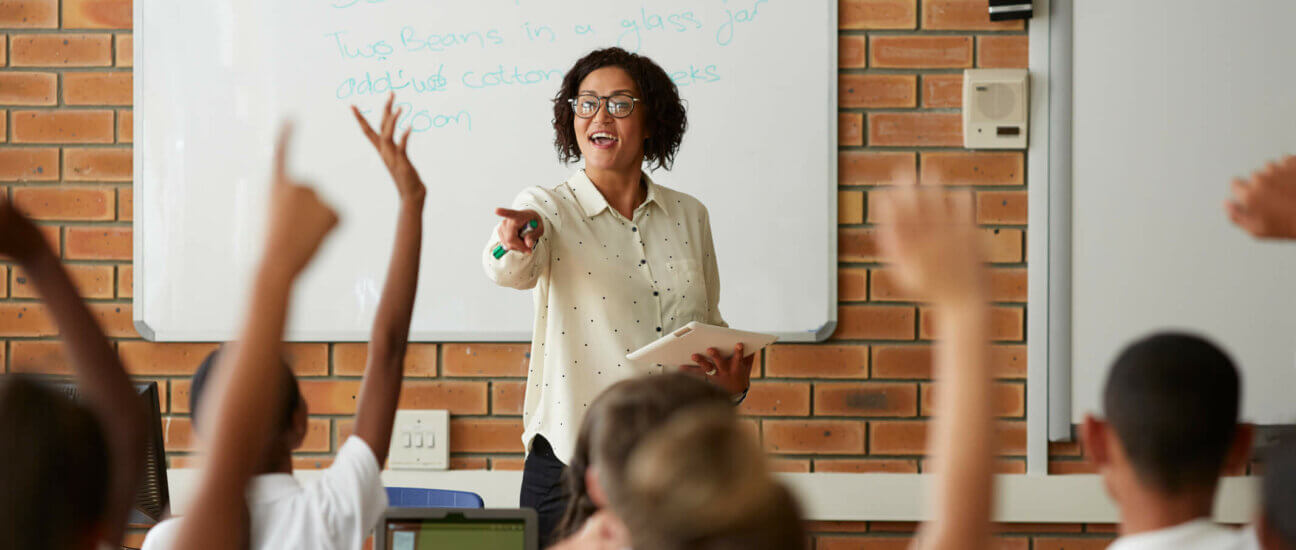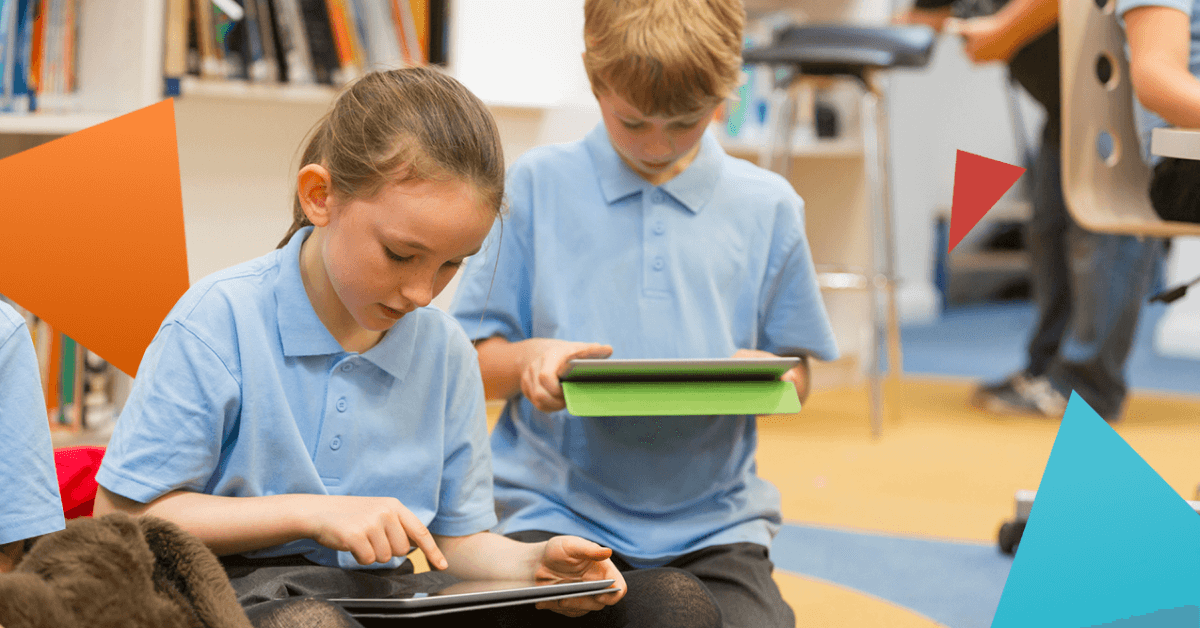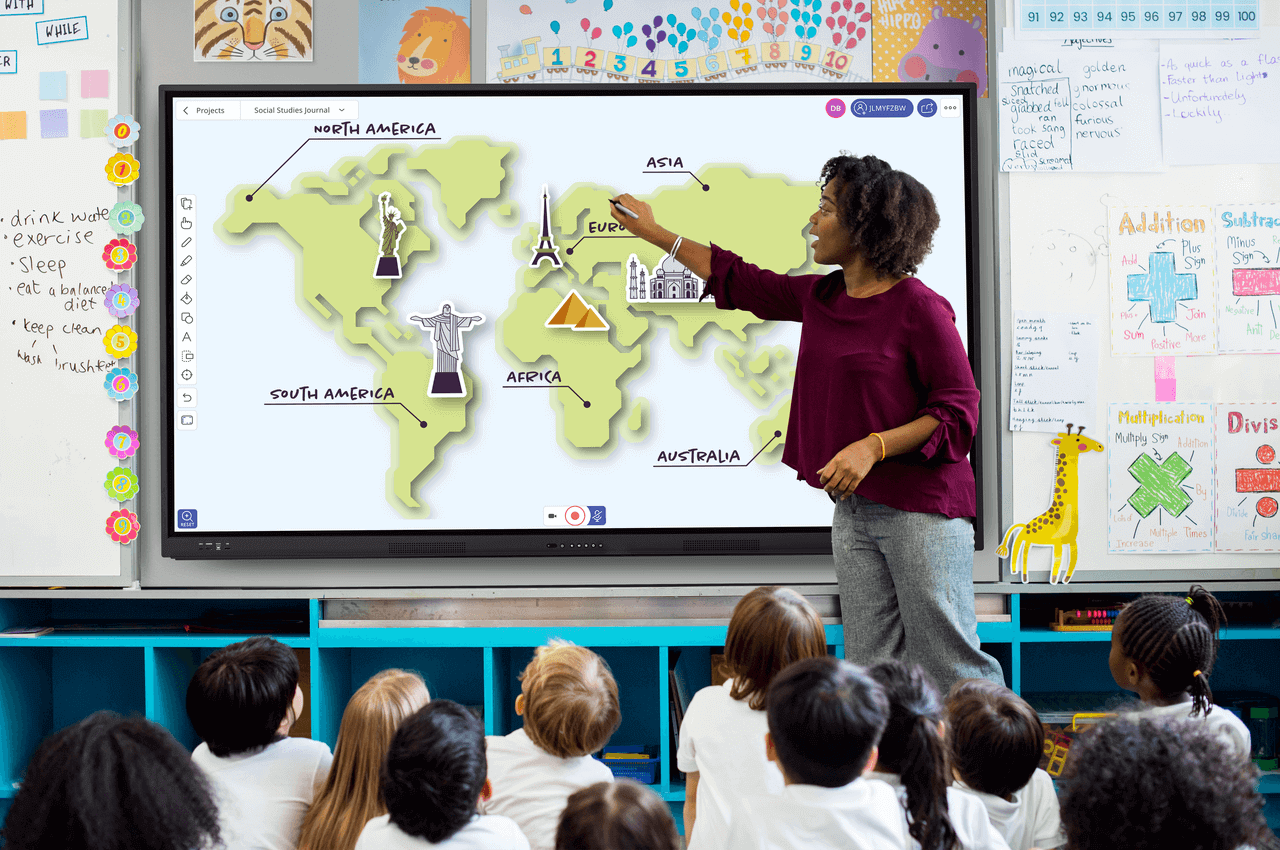Published on August 25th, 2023
How Can Teachers Prepare for the New School Year?
12 minute read

With the new school year fast approaching, it’s essential that you are ready for everything that it can throw your way. New students, lesson plans and targets for professional development all need to be considered, so, as tempting as it might sound, it’s best not to leave anything until the final week of the holidays.
Otherwise, your work-life balance may be affected, and you may be unable to give adequate time to things before the new school year begins. This can cause work to build up and mean time-consuming tasks don’t get the attention they require.
This guide aims to help teachers get a head start on the new school year and ensure effective planning for their new class. So without further ado, here’s how teachers prepare for the new school year…
The best ways for teachers to prepare for the new school year
After enjoying a break at the end of the school year and giving yourself time to rest and relax, attention quickly turns to getting ready for the new school year to begin. As the saying goes, ‘fail to prepare, prepare to fail’, so here are our five top tips for getting the new school year off to the best start.
1. Self-evaluation
Once you’ve had a few weeks off and a chance to enjoy your summer, you should conduct a self-evaluation and assess the successes and challenges of the previous school year. This will help you to identify areas that could be improved through continuous professional development (CPD).
Learn Promethean provides educators with valuable resources to support their CPD. Here, you’ll find online courses and articles featuring the latest research into how teachers can maximise the effectiveness of their lessons to boost student achievement. Plus, browse through our catalogue of learning guides to help you use your Promethean ActivPanel to its full potential.
[Insert screenshot of Learn Promethean page]
You should also reflect on the achievements of your class to spot any trends or patterns you may need to address through lesson planning. One way of doing this is by conducting a SWOT analysis, which stands for strengths, weaknesses, opportunities and threats.
Doing this exercise will help you to understand what you’re doing well, how you can improve, any opportunities that may be upcoming (like new technology or trends), and any obstacles you may face (e.g. a heavy workload).
2. Student analysis
As well as evaluating your performance, you should review the data of the classes you’ll teach during the upcoming school year. By doing this, you can identify areas for improvement and tailor your teaching approach, classroom rules and lessons to the needs of your class and individual students.
3. Set goals
Once you’ve identified areas of focus, personally and for your students, you should set goals to keep you accountable and ensure you meet your target for the year.
One way you can do this is by setting SMART goals to help you retain focus and use time and resources more productively. SMART stands for:
- Specific – your goal must be unambiguous and well-defined to help you plan.
- Measurable – you must have defined success criteria and smaller targets to help you track your progress.
- Achievable – your goal must be challenging but achievable within your set time frame.
- Relevant – the goal must be relevant to your long-term objectives and align with your values.
- Time-based – you must set an ambitious but realistic deadline to complete your goal. This will help you to prioritise tasks and increase your motivation.4.
4. Plan lessons
Once you have outlined what you want you and your students to achieve from the school year, it’s a good idea to start planning the first few weeks of lessons. When planning your lessons, you should refer back to your goals to ensure the activities you have planned for your class contribute to your targets.
While planning your lessons, you can refer back to your analysis of student data to ascertain where you can tailor tasks and activities to the individual needs of the kids in your class.
Additionally, you should plan welcome-back activities and icebreaker sessions to get to know your new students, along with how you can keep your students engaged at the beginning and end of lessons. These will enable you to get to know your students more and help them build relationships with each other.
5. Identify resources
When the first few weeks of lessons are planned, it helps to gather the relevant resources, like textbooks or digital software. Getting resources organised before the new term starts will be much easier than rushing around once students return to school.
At this point, you should familiarise yourself with new technologies, like interactive displays, to ensure you can use them smoothly before the new year starts. You can get a head start on these by identifying how to engage students using technology, and coming to the new year equipped with exciting new interactive whiteboard games and activities.
How can teachers mentally prepare for the new school year?
With extended hours and intensive marking, it’s understandable you might be feeling burnt out by the end of the school year, so you may not feel too optimistic about returning to work.
If you’re feeling stressed about heading back to school for the new academic year, you should speak to your line manager – as your employer, your school has a legal and moral duty of care.
To mentally prepare and help you get in the right frame of mind for the new school year, here are our top tips:
1. Reflect on the past year
Before you start thinking about the new school year, it’s a good idea to evaluate what went well during the last year and any challenges you faced. Assessing your performance will help you to consolidate what you did successfully, refine how you approach demanding situations and inform strategies for the upcoming school year.
2. Be organised
Establishing sound organisational systems for your personal and professional life and getting into a good routine before you head back to school is crucial for getting back into the swing of things.
The new year can soon sneak up on you, so make sure you’re ready and have everything in place before you head back to school!
3. Be flexible
As vital as it is to ensure you’re ready for the start of the school year, it’s important to remember to be adaptable too. Be prepared for plans to change and to adjust your teaching strategy and lesson plans to ensure tasks and theories are accessible to all of your students.
Throughout the school year, you will likely be called upon to navigate many challenges, like legislation changes, safeguarding issues, etc. So make sure you’re ready to expect the unexpected.
4. Practise self-care
Retaining a good work-life balance is tricky, but ensuring you can switch off from work stresses is essential. Meditating, exercising, indulging in hobbies, and spending time with loved ones are all excellent ways to switch off and avoid burnout.
5. Set realistic expectations
As well as being ready to adapt to new challenges and situations, you must understand that you can’t do everything. Becoming fixated on meeting unrealistic expectations can contribute to stress and make it harder to switch off.
You should balance out your goals by being realistic and understanding that sometimes things out of your control may stop you from achieving to the best of your ability.
Why is it important to prepare for the start of the academic year?
Stress levels are high, with many teachers (48%) telling an NEU survey they thought their workload was ‘unmanageable’ most or all of the time.
With such pressure on teachers to ensure lessons are effective and to offer pastoral care to pupils, too, time is at a premium in the profession.
To combat the high workload, getting lesson plans for the first weeks of the year done before term starts means you can allocate time to other tasks, like CPD.
Prepare for the upcoming school year with Promethean
To ensure a successful start to the new school year, give yourself adequate time to rest and relax during the summer holidays before preparing for the new school year.
If one of your goals this year is to increase student engagement, the Promethean blog has everything you need. From tips on everything from engaging shy and quiet students to teaching children different learning styles in the classroom:
- How to Teach Children with a Visual Learning Style
- How to Teach Children with an Auditory Learning Style
- How to Teach Children with a Reading and Writing Learning Style
- How to Teach Children with a Kinaesthetic Learning Style
FAQs
What are the other ways I can mentally prepare for the new school year?
Aside from the tips outlined above, it’s important that you take a well-earned break too. After a long year of supporting and teaching students, you need a rest, and the summer holidays are the ideal time to do this.
Switching off can be difficult, especially with the next school year on the horizon, but taking some time for yourself, reconnecting with friends and family and going on holiday will help you get in a better frame of mind before considering the new term.




